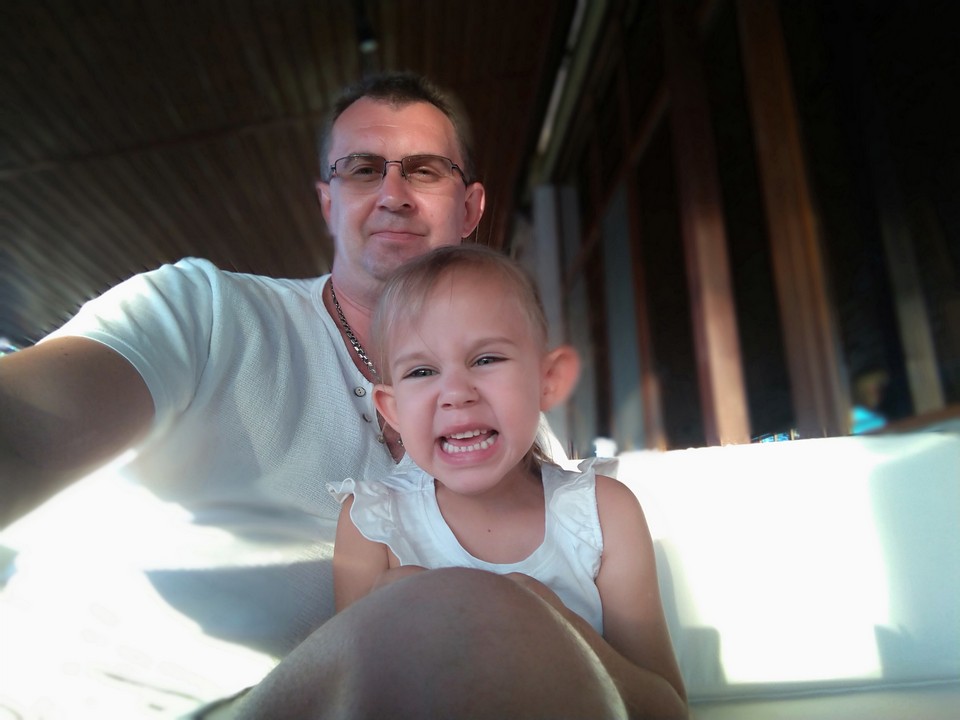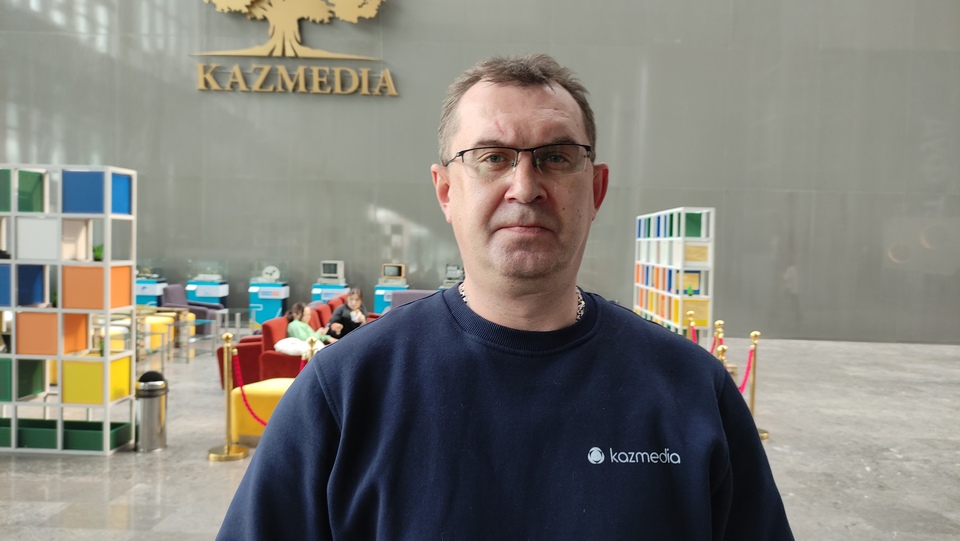Interview with Sergey Gorbunov, Deputy Technical Director of “Kazmedia Ortalygy” LLC.
– What kind of family were you born into? Who are your parents and what did they do?
I was born in 1978 in Pavlodar into a family of electrical engineers, so it was assumed from my school days that I would be an electrical engineer too. My mother worked at a design institute, and my father was an electrical engineer (working in shifts) at “Nefteyuganenergoneft”.
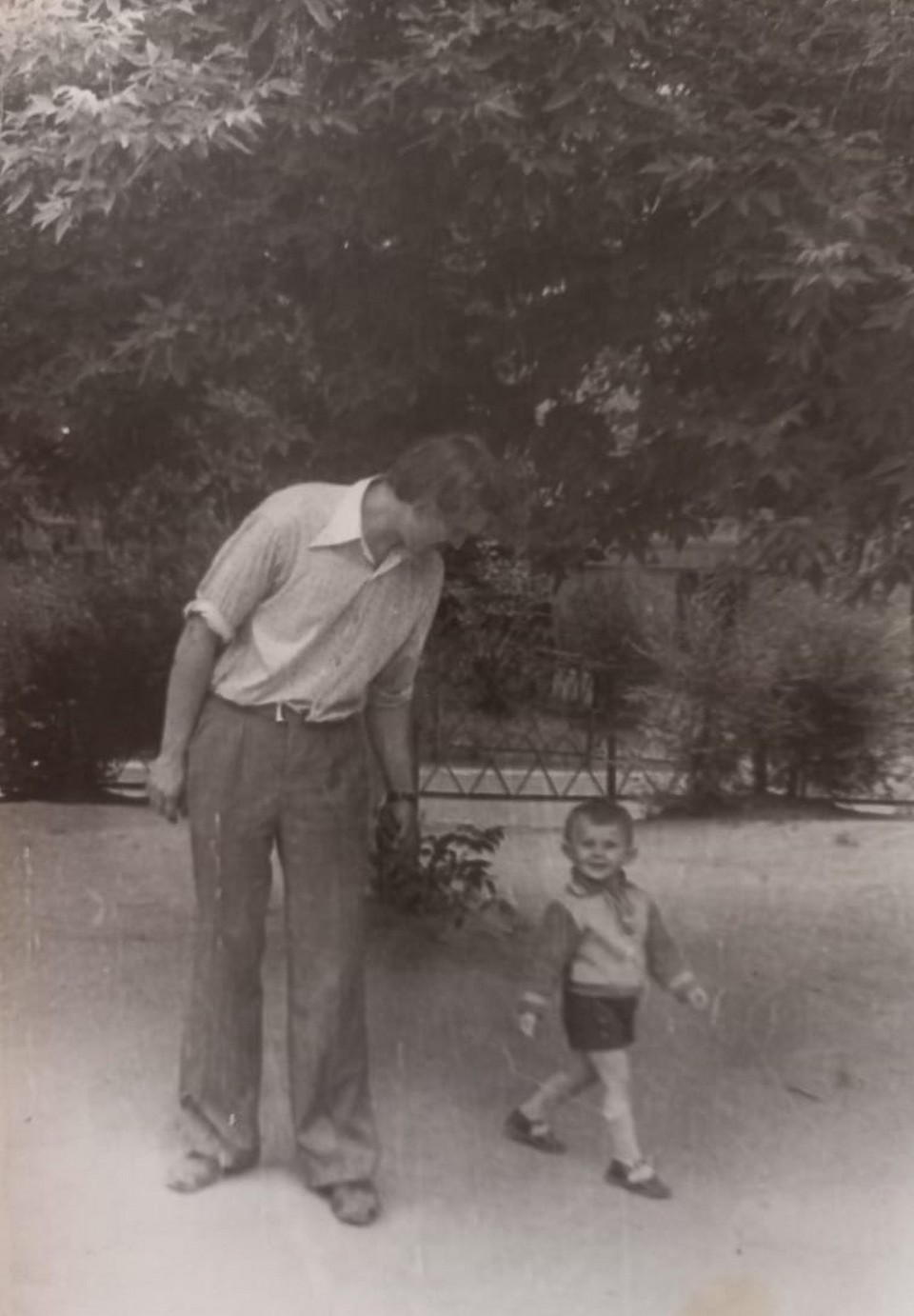
– Did you do well in school?
Inconsistently. In school, it was boring for me to study “evenly” all the time. Whether I got a “C” or an “A” depended on my mood. Then, there were exams that helped me out.
– Which subjects were you more interested in? What were your inclinations?
First of all, physics, from the very first lesson. Then algebra, geometry, and chemistry were added. At the same time, I was interested in literature and history. In my case, it depended on the teachers. And I was lucky with teachers in this life, not only at school.
– What were your hobbies in childhood?
As far as I can remember, I always found it interesting to do something with my hands. The basics were laid by my grandfather and father: my grandfather gave me my first set of tools, taught me how to hold a hammer and pliers, and my father introduced me to the magical world of electronics. It started with harmless and scarce Christmas tree garlands at that time. My father explained what serial and parallel connections were. Gradually, with my father’s support, I moved on to more serious schemes. I remember a moment: I woke up and realized that I urgently needed a light music system. Searching for schematics, necessary parts, and wires, discussing what was better to paint – the bulbs or the glass – and the feeling of pleasure from a job well done, from the process of creation itself. This only reinforced my confidence in choosing a profession. The light music, by the way, is still in working condition, I just haven’t gotten around to picking it up.
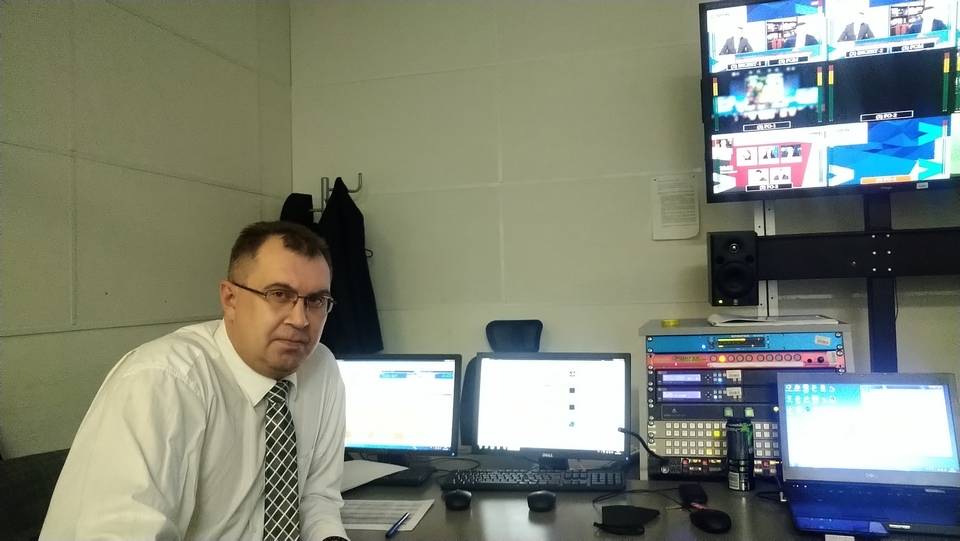
– Where did you go after finishing school?
I entered the Faculty of Mechanical Engineering at Pavlodar State University, specializing in mechanical engineering. We were the first ones who, upon admission, did not take traditional exams but underwent testing. I studied on a state-funded basis. In the year I enrolled, 1995, commercial departments were just starting to open.
– Why did you go in this direction, considering you planned to be an “electrical engineer”?
A banal human factor – an error in calculating points. We found out about this too late when there were no places left in the energy faculty. The appeal changed nothing, and I calmly studied to become a mechanical engineer.
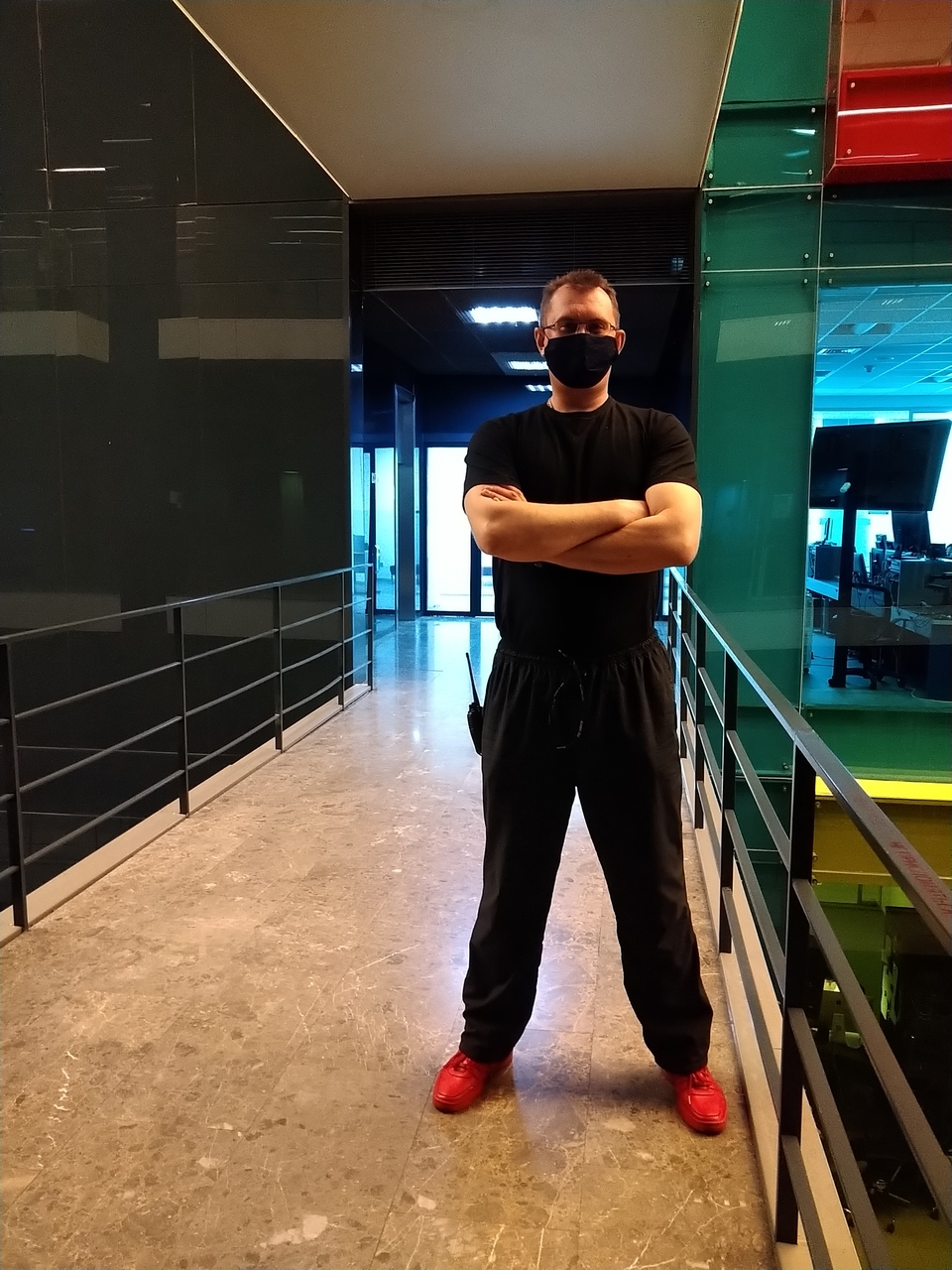
– What about the army?
Lieutenant in reserve, military department.
– How did you study at the university?
In the 4th-5th year, all sessions were completed with “excellent” marks. Having started, you need to bring things to an end and become the best at it.
– When did you start working?
My very first part-time job was during the summer school holidays in landscaping. I was 13 years old, worked 4 hours a day for 600 rubles. It was interesting to work myself, and the pocket money was not superfluous. During my university studies, I also worked part-time. My best friend, having dropped out of school, plunged headlong into commerce. I periodically participated in his business.
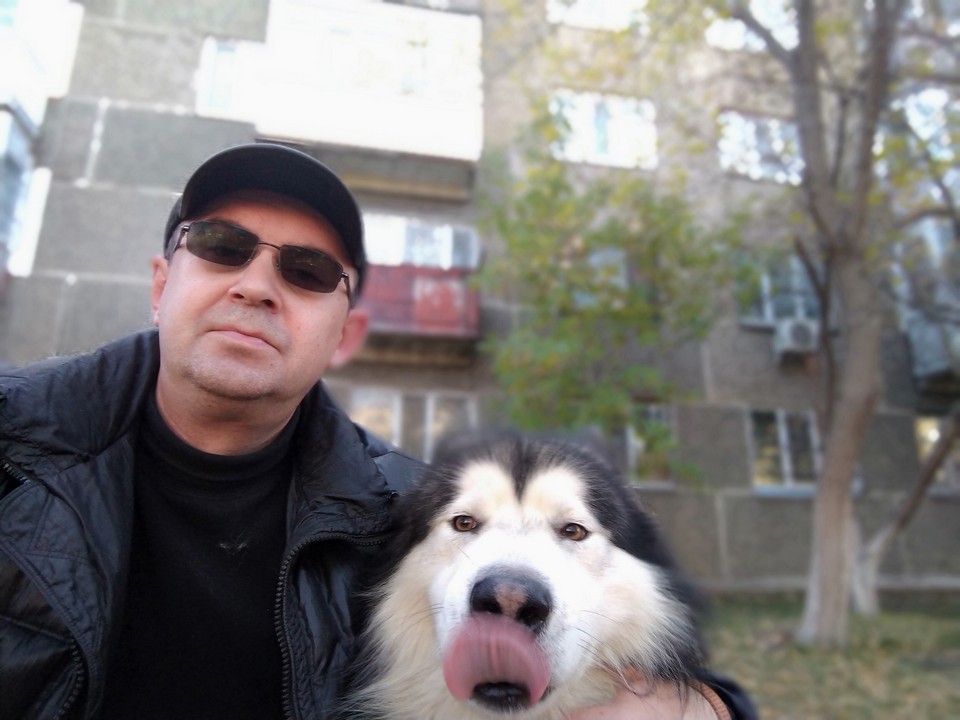
– Where did you get a job after university?
On the second day after receiving my diploma, I began my new professional activity. At the Pavlodar road construction organization as a mechanical engineer. After the euphoria of official employment and the start of an independent life, I realized that I couldn’t live on such a salary. Therefore, after working for a year, I resigned.
– Did you prepare a backup plan?
In Pavlodar, there was only one place where they paid a high salary by local standards – the Pavlodar Aluminum Plant. My position, process operator-metallurgist, was not related to mechanical engineering or radio electronics. It was a job of the “take more, throw farther” kind. But I was lucky again with teachers. After some time, they began to prepare me for the position of a substitute master technologist. Admission to the Krasnoyarsk University for a degree in aluminum production technology was already planned. But, you can say, a “lucky chance” intervened – during the vacation, a neighbor at the dacha offered to work at the “Security Systems” company, which deals with installing video cameras, video surveillance systems, and satellite antennas. I agreed.
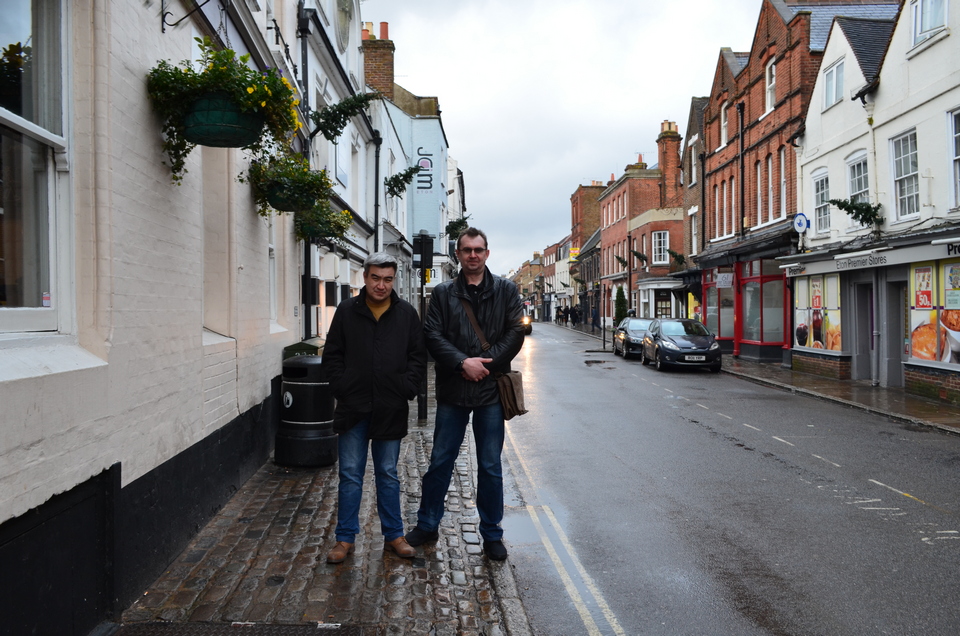
– A new activity for you. How did you get into the profession?
At “Security Systems,” I did a bit of everything: structured cabling systems, low-current systems, access control systems, television. Due to the unfolding family circumstances, I was offered to go on a business trip to the Astana branch, for a month. Then, for another month. I liked working there, and when the general director offered to stay as the branch director, I didn’t hesitate for long.
– What were the duties of the branch director?
At that time, the Astana branch had two employees – the director, who was also the manager, the warehouse manager, the programmer, and sometimes the installer, and the accountant. The second was a sales specialist. Gradually we began to expand – as the market and conditions allowed. I had to learn everything at once – from accounting and negotiations to organizing the production process. Here, I cannot but express my gratitude to my technical director Mikhail Lysenko, who gave lessons in production organization, communications. I still use many of his “techniques”.
– How many years did you work there, and why did you leave?
Total tenure at “System” – 8 years. And then quite rapid market changes began: customer needs changed, there was a demand for new, more extended services; new companies appeared, new manufacturers entered; new technologies appeared. I wanted new knowledge and new “horizons.”
– Was there an attractive offer?
This time I went freelance. The direction of work remained the same – security systems, installation of satellite antennas, access control systems. Number recognition systems were added, in those years there was a booming demand for them in Astana. And in the summer of 2012, my old friend offered to come to the new, just opening, “Kazmedia” telecenter.
– What position, what were the functional responsibilities?
As an engineer of the studio hardware block, I was responsible for launching the studio, preparing and conducting filming, live broadcasts – the entire studio process.
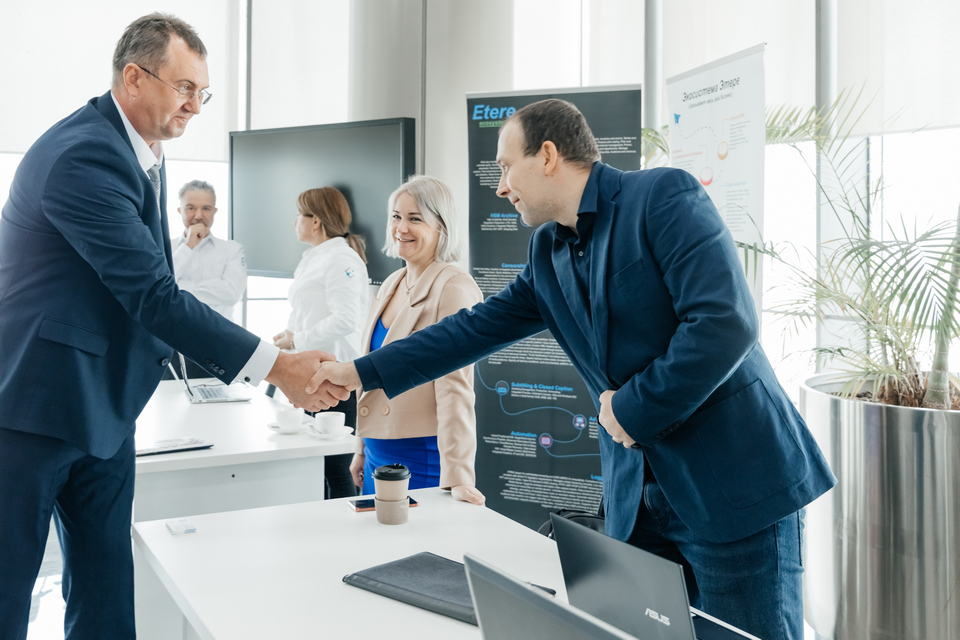
– How did the learning process go?
I was lucky again with teachers. I was personally hired by the technical director of “Kazmedia,” Vladislav Bogusevich, so, you can say, under his lucky star, my career at “Kazmedia” began. And then I was “led” by professionals – Vyacheslav Mershiyev, Bagila Isakova, Ilyas Zhumatayev, my boss Rinat Muksinov, and many others. In fact, I was accepted into this professional family as “one of their own,” shared knowledge, did not hide any subtleties, helped, trained, advised. I had to live up to such a level of trust, and today, I hope, I am an equal among equals.
– How did your career develop?
Step by step. Starting as an engineer of the ASB, after 6 months I moved to the position of lead engineer, after three years I became a substitute shift supervisor, substituting during vacations. Another three years later, I was appointed shift supervisor, then head of the ASB department, my “native” one – the one where I started. In the fall of 2020, I was offered the position of deputy technical director.
– What was included in the area of responsibility?
It’s hard to set clear boundaries, as all processes are interconnected. You need to keep everything in mind. When you’re a shift supervisor, you must control the entire technical block where you are for twelve hours. For a deputy technical director, this need increases manifold – in both volume and time. You need to know and remember all the details of each technological process. Perhaps that’s why I agreed, because it’s very difficult and very interesting. I don’t regret a second that I moved to this stage.
– What’s the interest, what’s the challenge?
The challenge is in the level of complexity of tasks. I view the media center and everything associated with it as a constructor, a labyrinth with secret rooms. The more you know about this constructor, the more you realize how much you still don’t know – and that’s interesting. It constantly evolves, updates, as technological progress does not stand still. You can’t say “here I know everything,” because it turns out that your knowledge about what was yesterday, and today something new has already appeared. Yesterday it was an editing table, and today we are already talking about implementing technologies with elements of artificial intelligence. This is incredibly fascinating.
Technical management is not just an office job, as it might seem from the outside. We need to keep our finger on the pulse of absolutely everything, all the time. There are routine paperwork processes necessary for uninterrupted work. There are also emergency modes when tasks of increased complexity, marked with an asterisk, come in. This is doubly interesting – it’s a constant challenge to your intellect, professional qualifications, and ability to work in a team. There are no individuals here; at a complex facility like a media center, only a cohesive and qualified team can work successfully.
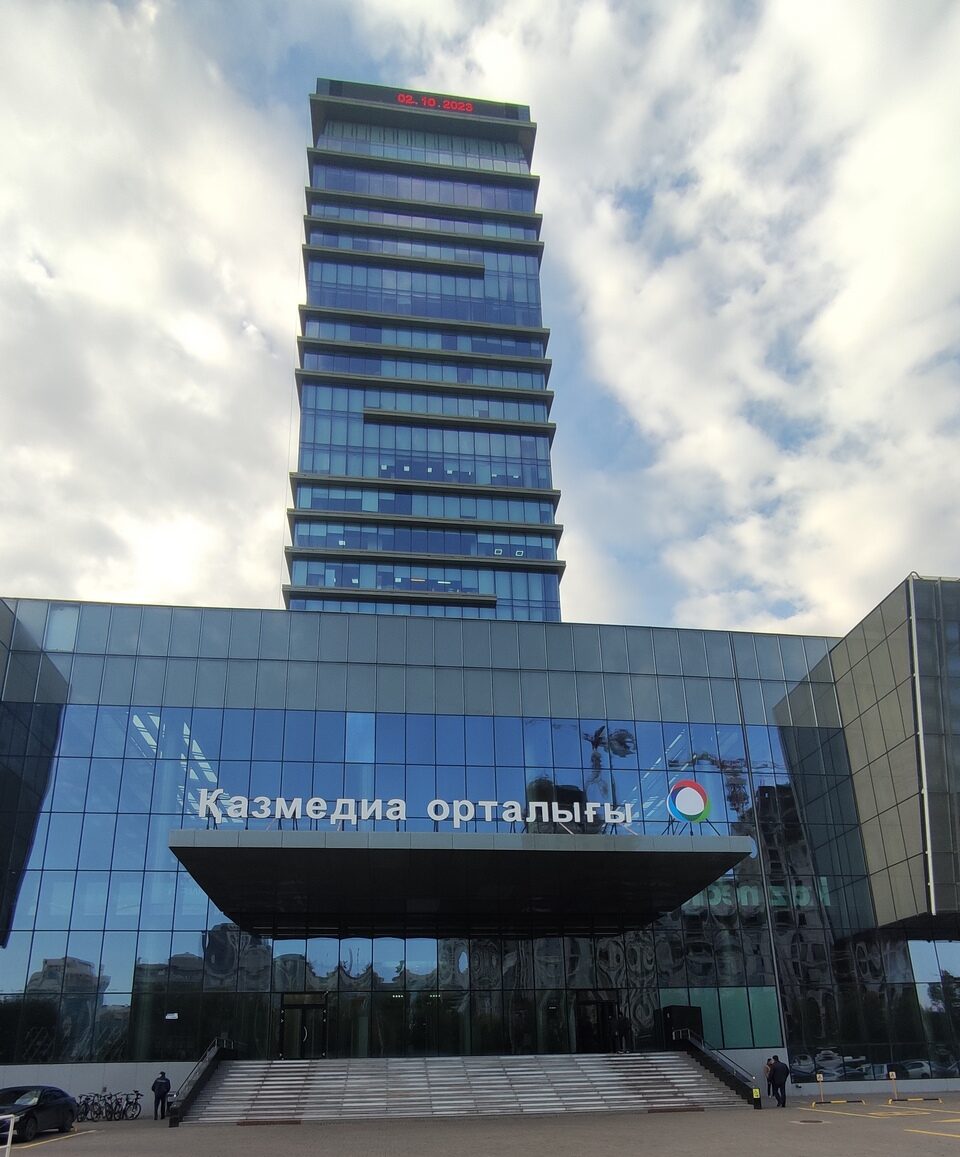
– “Kazmedia Center” is the second-largest media center after “Ostankino” in the territory of the former Union. What is happening in your service with the advent of the IP era?
Major progress in this direction began in 2017. “Kazmedia” was the first in the country to implement projects in automation and robotics. As part of the program, an internship was organized in the London office of Ross Company. I had to immediately improve my English. In subsequent years, we participated in testing remote production technologies. Recently, the development of a virtual studio complex project (transition from decorations with video walls to virtual augmented reality) has been underway.
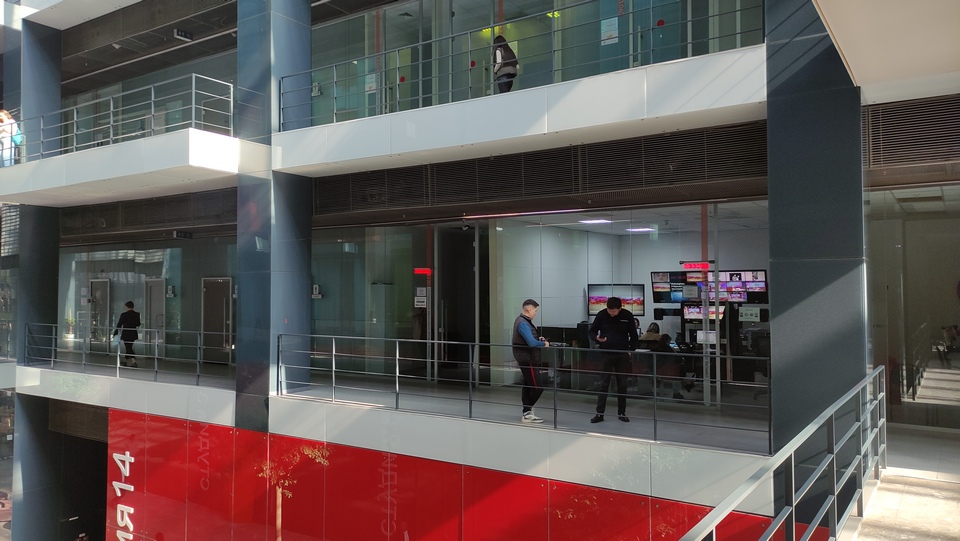
The management has big plans, and I am glad to be a part of their implementation. Regarding the complete transition of the media center to IP technologies, my colleagues and I believe that it is premature to talk about this. To date, there is no understanding of whether the entire field of television, not just a specific media center, is ready to work with new technologies professionally. We constantly communicate with colleagues who have experience in the field of IP, studying their developments. Some developments are ready for implementation, while others are still very “raw”. Moreover, there are no clear standards. Of course, any technical novelty is interesting, it’s a professional challenge to the entire technical block. But these technologies need to be implemented wisely. Television must not stop; it broadcasts always and under any circumstances.
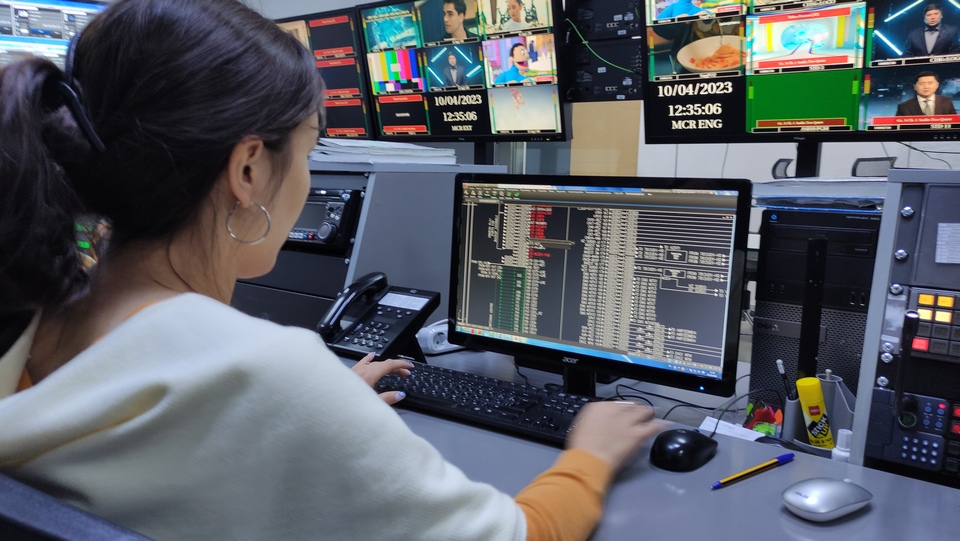
– Do you have personal plans?
A few years ago, I enrolled in the Tomsk Academy of Control Systems and Radioelectronics, one of the strongest technical universities in the post-Soviet space, for correspondence education. For objective reasons, I took academic leave. In the near future, I want to re-enroll and complete my second, now professional, higher education. Once you start something, you need to finish it.
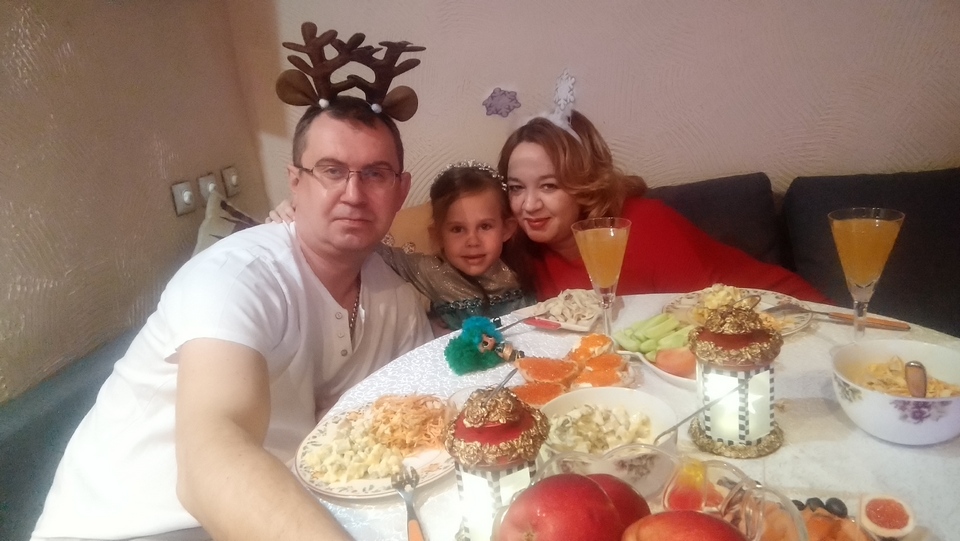
– How has your personal life developed after moving to Astana?
I met the one who became my beautiful wife. She’s a journalist. Our daughter is five years old. She asks questions like her mother and is interested in technology like her father. Recently, she surprised me with an explanation of what electric current is. Perhaps she is the future generation of engineers.
